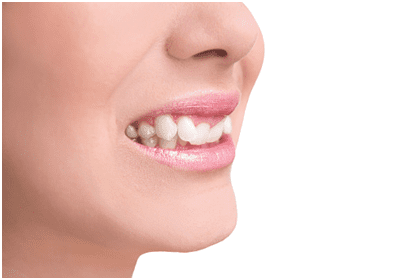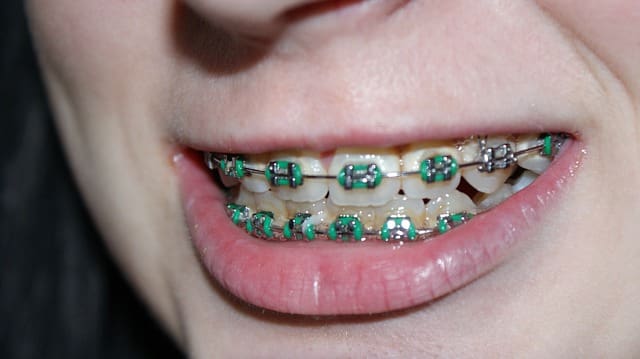Are My Oral Health Problems Hereditary?

Practically everything about us is the result of genes we inherited from our parents. The same is true for not just the structure of our mouths and the position of our teeth, but research is showing genes may also play a role in your oral health.
From tooth decay to gum disease to even your risk for oral cancer, here we determine just how much influence your genes have over how healthy your smile is today. Here’s what you need to know about oral health concerns that could be hereditary.
Tooth Decay
A whopping 92% of adults in the United States between the ages of 20-64 have at least one cavity in their permanent teeth.
For some people, it seems like no matter how well they care for their smile, cavities inevitably surface during a checkup. For others, it seems like they can eat whatever they want and skip the dentist while still having seemingly perfect teeth.
Why do cavities repeatedly happen to some people and not others? Researchers have gotten close to identifying genes that may impact the immune response to bacteria in the mouth. This means your genes could influence your risk for tooth decay.
Of course, other factors are at play too, such as enamel development and environmental habits, such as how well you care for your teeth and what you eat.
Even though you might be predisposed to cavities, this doesn’t mean you should stop caring for your teeth. Without the proper care, your tooth decay will inevitably get worse. Science says to keep brushing your teeth and get checkups as your best defense against tooth decay!
Gum Disease
Periodontal disease, commonly called gum disease, is an active infection in the mouth that attacks the gums and supporting bone. Ranging in stages from mild to advanced, gum disease can eventually lead to tooth loss.
Certain people may be more susceptible to gum disease. If you have a parent who has gum disease, you may be more likely to inherit the same bacteria in addition to an inadequate immune response. Your immune system plays an active role in combating the bacteria that are responsible for gum disease. If you have any immune system disorders or have a weak immune system, you could be more likely to get gum disease.
You can take active steps to prevent gum disease. These steps include brushing and flossing your teeth daily in addition to visiting your dentist in Asheville. Your dentist can spot the signs of gum disease much sooner than you can, so you can take steps to reverse the disease before it becomes a bigger problem.
Orthodontic Problems
Crooked teeth may be inherited similarly to the other oral health problems we just discussed. The size and shape of your mouth is, you guessed it, determined by your genes.
This means that if your parents had any orthodontic work done, it’s likely that you’ll need some corrective measures for your teeth as well. People may also inherit conflicting traits from each parent that make orthodontic work necessary, such as dad’s small jaw with mom’s large teeth.

Teeth that are overcrowded or crooked are often difficult to clean properly. It can feel impossible to reach those tight spaces to remove plaque and bacteria to help prevent problems.
Your best defense against inherited bite or misalignment issues is to get a referral to an orthodontist from your Asheville dentist services. The sooner these problems are taken care of, the higher the potential you have for a beautiful, healthy smile for life.
Oral Cancer
A genetic predisposition to oral cancer has not been proven. Although like most cancers, if you have a family member with the disease, you may be more likely to develop it yourself.
Cancer is a complex disease that’s development depends on many different factors. Genes play a role, but so does your environment, your diet, your exposure to certain chemicals, and many more factors.
You should get screened for oral cancer annually starting at age 18. Fortunately, your dentist in Asheville can do this easily during your oral exam. If you use any type of tobacco product, this significantly increases your risk for oral cancer, and you should ideally get screened every 6-12 months as soon as your use starts.
Enamel Strength
The strength of your tooth enamel will vary. Based on your unique genetic makeup, you may have softer enamel than someone else, which could increase your risk of tooth decay. This is why it’s imperative to take care of your teeth!
Research suggests that the development of your enamel may be an inherited factor, so if you have weak or strong tooth enamel, this could be the result of genetics and will, therefore, influence your risk of cavities.
Your Taste for Sweets
Having a sweet tooth might actually be hereditary. Scientists have found different genes that dictate who prefers sweets and how much. People who crave sweets are also more likely to have oral health problems, as sugar is so bad for your smile!

If you crave sweets or just really enjoy eating sweet foods, this could be an inherited risk factor that could increase your risk for cavities, as these people tend to eat more sweets. People who crave more bitter foods, such as vegetables, cheese, or olives for instance, often have lower rates of tooth decay as well as other diseases such as cancer.
Your Immune System
Everyone has bacteria in their mouths, both good and bad. This is normal. Your immune system is closely related to your oral health, as it is responsible for handling bacteria that can negatively affect your smile.
This immune system response may be influenced by your genes, which means that if you have a strong immune system, you may be less likely to experience tooth decay, and vice versa.
Your immune system can also help prevent gum disease, meaning that you’d be less likely to get gum disease if your immune system is strong and healthy. Although it’s difficult to tell how high your risk is for certain oral health problems based on your immune system, regular checkups can help keep your teeth strong and healthy!
Conclusion
Although several oral health problems have shown a genetic link, this doesn’t mean that your tooth decay or gum disease was caused by your genes. A combination of environmental factors as well as genes ultimately determines your oral health.
This means that although you might be at greater risk for gum disease or have weak enamel, your most powerful tool is prevention. You control how well you take care of your teeth. It’s never too late to start making sure your teeth are in the best shape possible.
Schedule a dental exam with your dentist in Asheville today to discuss your risk for oral health problems and to keep your smile in tip-top shape!
